Questões de Língua Inglesa do ano 2010
Lista completa de Questões de Língua Inglesa do ano 2010 para resolução totalmente grátis. Selecione os assuntos no filtro de questões e comece a resolver exercícios.
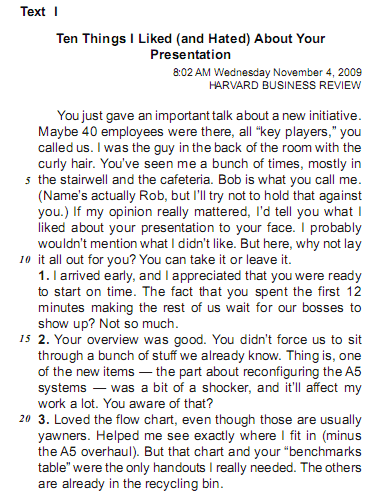
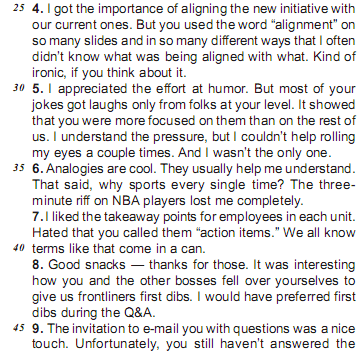
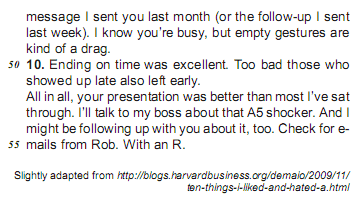
The main purpose of Text I is to
- A.
praise a speaker on the presentation he gave recently in a large company.
- B.
clarify why speakers should be able to start and finish their presentations on the time scheduled.
- C.
identify all the linguistic problems that disturbed the listeners' comprehension of the speaker's message.
- D.
criticize a speaker's poor presentation skills and inability in dealing with the questions posed by the audience.
- E.
point out the qualities and drawbacks of a recent business presentation, according to a member of the audience.
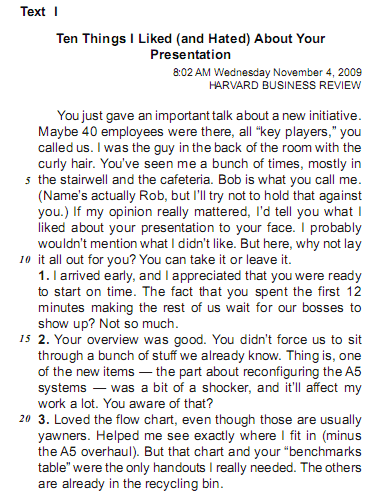
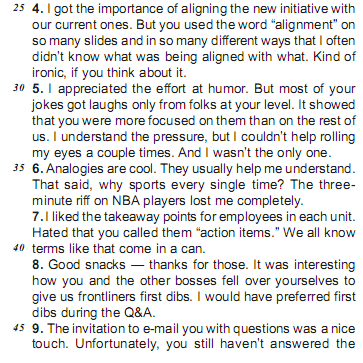
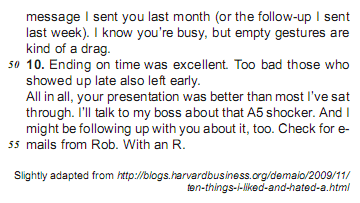
According to paragraph 1, we may infer that the writer of the article
- A.
wonders whether the presenter would care to hear the writer's own opinion on the talk.
- B.
seems to be a very close friend of the speaker, given their frequent meetings in the cafeteria.
- C.
would have considered the business talk a relevant one if more employees had been invited to attend it.
- D.
believes that his comments on the presentation will not help the speaker improve his performance in public.
- E.
deeply regrets the fact that the speaker was incapable of recalling who he was and where they had met before.
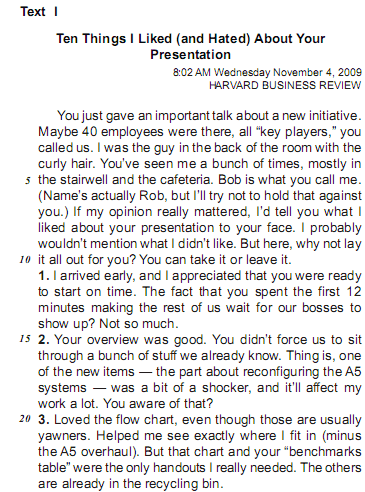
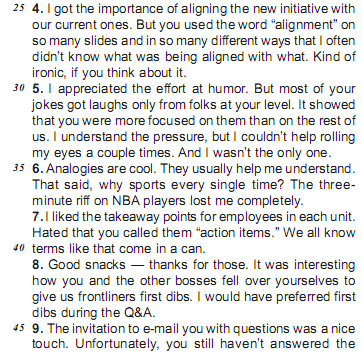
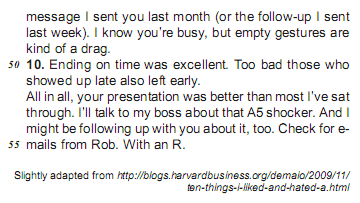
The sentence "...I couldn't help rolling my eyes a couple of times." (lines 33-34) implies that the author was feeling
- A.
enraged at the indifference of all the members of the audience to the jokes.
- B.
sympathetic towards the speaker's excessive use of jokes in a serious business.
- C.
upset with the laughs constantly coming from all the members of the audience.
- D.
annoyed at the fact that the majority of the jokes told were not targeted to the average audience.
- E.
depressed because he was the only person in the audience who did not understand the speaker's jokes.
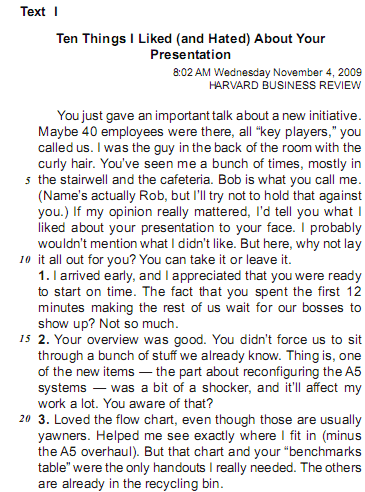
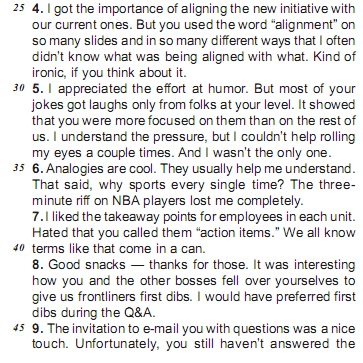
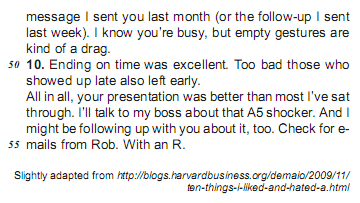
In "It was interesting how you and the other bosses fell over yourselves " (lines 41-42), the expression "fall over oneself" means
- A.
display eagerness.
- B.
express sadness.
- C.
show sorrow for.
- D.
convey deception.
- E.
denote sympathy.
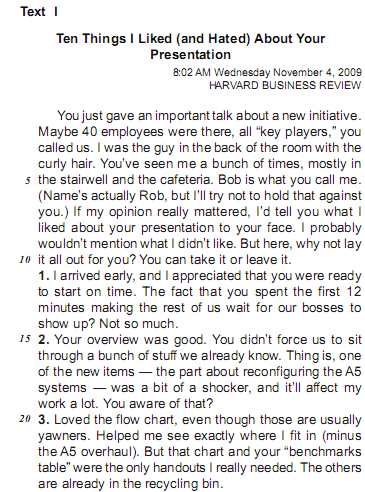
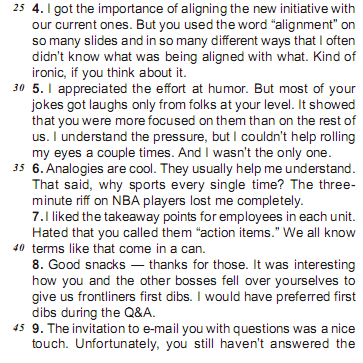
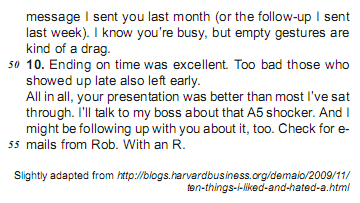
All of the following fragments from the text contain instances of informal language, EXCEPT
- A.
"Name's actually Rob, but I'll try not to hold that against you." (lines 6-7).
- B.
"...You aware of that?" (line 19).
- C.
"Loved the flow chart, even though these are usually yawners." (lines 20-21).
- D.
"But that chart and your 'benchmarks table' were the only handouts I really needed." (lines 22-23).
- E.
"but empty gestures are kind of a drag." (lines 48-49).
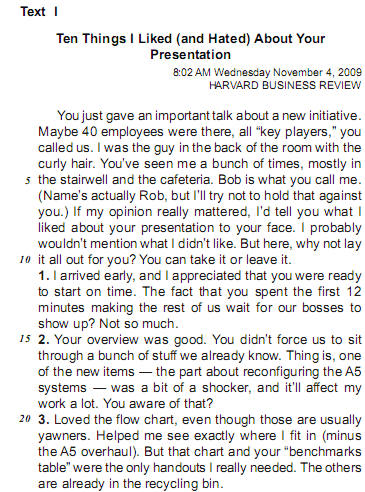
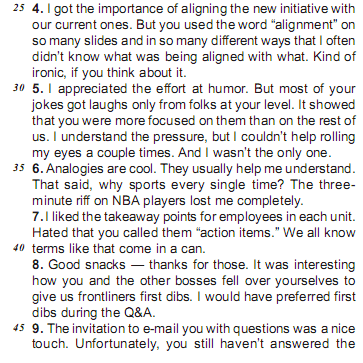
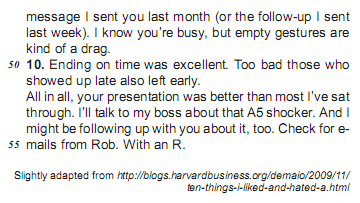
The feature the author criticized about the presentation is the
- A.
quality of the food served.
- B.
flow chart and benchmarks table.
- C.
punctuality in ending the presentation.
- D.
invitation to e-mail the speaker with questions.
- E.
expression used to refer to the takeaway points.
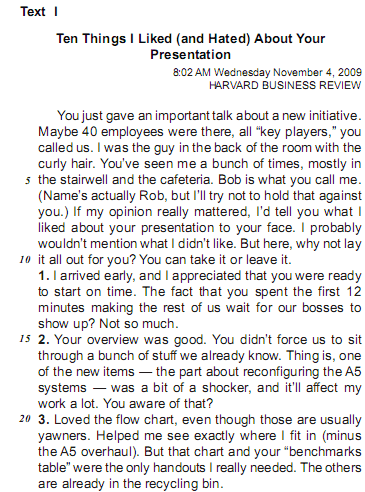
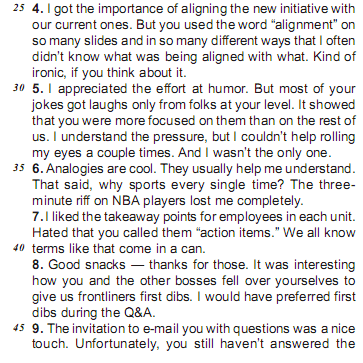
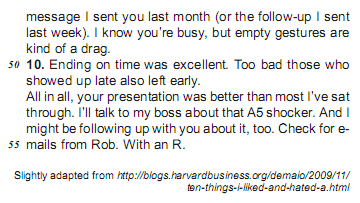
In "I would have preferred first dibs during the Q&A."(lines 43-44), "I would have preferred" could be correctly replaced by
- A.
I might have preferred.
- B.
I would never prefer.
- C.
I'll choose to have.
- D.
I could only prefer.
- E.
I'd rather opt out of.
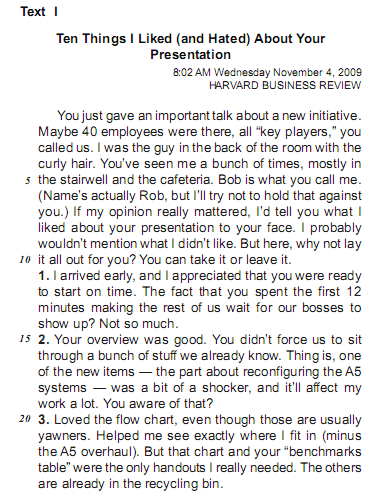
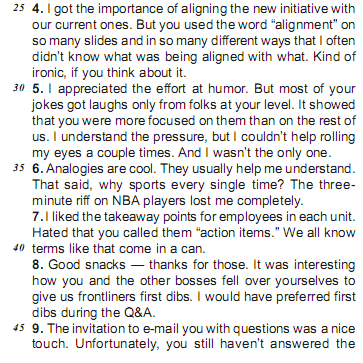
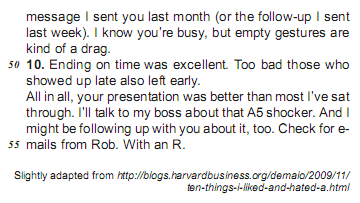
Check the only alternative in which the expression in boldtype has the same meaning as the item given.
- A.
"The fact that you spent the first 12 minutes making the rest of us wait for our bosses to show up?"(lines 12-14) – boast.
- B.
"You didn't force us to sit through a bunch of stuff we already know." (lines 15-16) – accept.
- C.
"Helped me see exactly where I fit in" (line 21) – belong.
- D.
"It showed that you were more focused on them than on the rest of us." (lines 31-33)-attracted to.
- E.
"And I might be following up with you about it, too."(lines 53-54) – investigating.
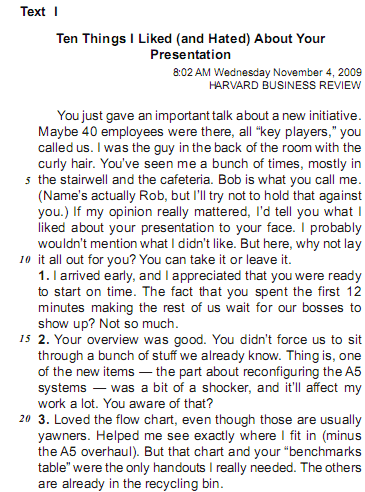
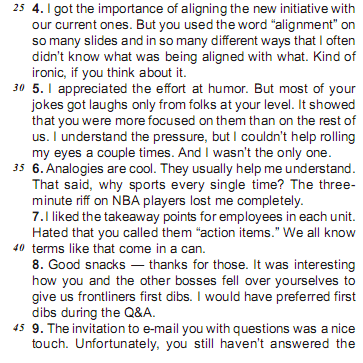
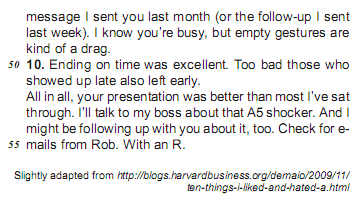
In terms of reference, it is correct to affirm that
- A.
"...it..." (line 10) refers to " ...presentation... " (line 8).
- B.
"The others..." (line 23) refers to "...handouts..." (line 23).
- C.
"...ones..." (line 26) refers to "...alignment(s)..." (line 26).
- D.
"...them..." (line 32) refers to "...jokes..." (line 31).
- E.
"...it," (line 54) refers to "...presentation..." (line 52).
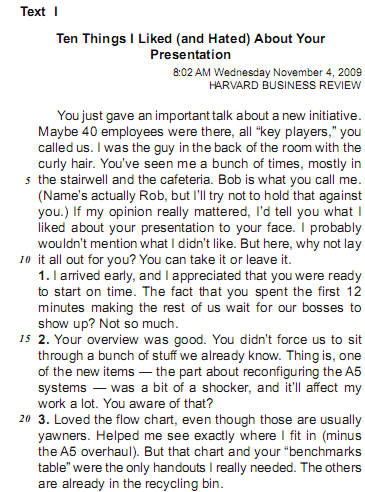
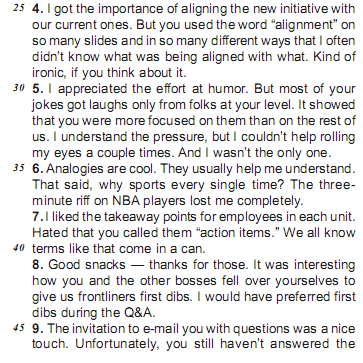
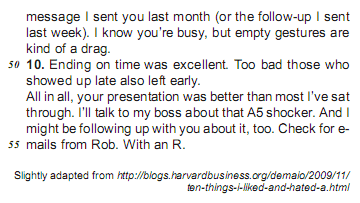
Mark the item that describes the tone of the closing line of Text I: "Check for e-mails from Rob. With an R." (lines 54-55).
- A.
A cordial tone that informs the speaker that Rob does not mind having his name misspelled.
- B.
A friendly, yet ironic tone, to make sure the speaker will not mistake Rob's name again.
- C.
A snobbish tone to alert the speaker of his incapacity to interact with employees in a receptive way.
- D.
An unexpectedly threatening tone indicating that Rob will eventually get back at the speaker.
- E.
An impolite tone to remind the speaker of how rude he usually is at work when he forgets people's names.


